#Margareth clementi
Explore tagged Tumblr posts
Text


Pierre and Margareth Clementi at the premiere of Benjamin ou Les mémoires d'un puceau (1968)
13 notes
·
View notes
Text
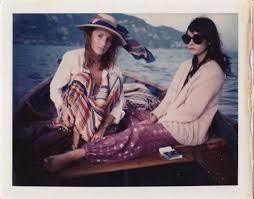
0 notes
Photo
Arabian Nights
16 1974 ‧ Fantasy/Adventure ‧ 2h 35m
Arabian Nights is a 1974 Italian film directed by Pier Paolo Pasolini. Its original Italian title is Il fiore delle mille e una notte, which means The Flower of the One Thousand and One Nights.
PLOT
The third installment in director Pier Paolo Pasolini's "Trilogy of Life" films depicts a multiplicity of narratives culled from the famous Arabic anthology "The Book of One Thousand and One Nights." At the center is the story of Nur Ed Din (Franco Merli), a naif who purchases a slave girl, Zumurrud (Ines Pellegrini). The two fall in love, but Zumurrud is kidnapped soon after. She escapes her captors and, disguised as a man, ultimately becomes king of an exotic land.
Release date: August 14, 1974 (Paris)
Director: Pier Paolo Pasolini
Adapted from: One Thousand and One Nights
Distributed by: United Artists
Music by: Ennio Morricone
Produced by: Alberto Grimaldi
Starring
Ninetto Davoli
Franco Citti
Ines Pellegrini
Tessa Bouché
Franco Merli
Alberto Argentino
Jocelyne Munchenbach
Margareth Clementi
Christian Aligny
Salvatore Sapienza
Jeanne Gauffin Mathieu
Francelise Noel
Arabian Nights (1974 film) - Wikipedia

Arabian Nights (1974); dir. Pier Paolo Pasolini
75 notes
·
View notes
Text

Margareth Clémenti in Medea (1969)
186 notes
·
View notes
Photo










The Sun (1988)
31 notes
·
View notes
Photo

#arabian nights#ninetto davoli#franco citti#ines pellegrini#tessa bouché#franco merli#margareth clementi#jocelyne munchenbach#alberto argentino#christian aligny#salvatore sapienza#Jeanne Gauffin Mathieu#Francelise Noel#pier paolo pasolini#1974
24 notes
·
View notes
Text
Medéia, a Feiticeira do Amor (1969)
Medea
Direção: Pier Paolo Pasolini;
Roteiro: Pier Paolo Pasolini;
Gênero: Drama; Fantasia;
País: Itália, França e Alemanha Ocidental.
Nesta reconstituição da tragédia grega Medéia, de Eurípedes, Pier Paolo Pasolini dirige a divina Maria Callas em sua única incursão pela arte cinematográfica. A escolha da soprano grega para o papel da protagonista não poderia ser mais acertada: somente uma intérprete de ópera da estirpe de Callas poderia dar vida tão convincentemente a Medéia, personagem emblemática da Tragédia. E Maria Callas é a Medéia definitiva - assim como, transposta a tragédia para a realidade brasileira, Bibi Ferreira assumira o papel definitivo de Joana, na adaptação de Chico Buarque e Paulo Pontes -. A tragédia pasoliniana recupera de Eurípedes o sentido trágico e conflituoso entre razão e sentimento. A oposição entre a racionalidade grega (figurativizada paradigmaticamente pela personagem de Jasão, interpretado pelo belíssimo ator Giuseppe Gentile) e a ancestralidade e espiritualidade colquídia (emblematicamente representadas através dos rituais antropofágicos e do profundo espiritualismo pagão das longas sequências com que o filme nos apresenta à Medéia) paira no horizonte do filme, reverberando sentidos que podem ser transpostos à modernidade: a tragédia do homem moderno (e pós-moderno, sobretudo) se constitui igualmente no embate entre razão e sentimento.
Na primeira cena do filme, assistimos ao centauro Quíron (Laurent Terzieff) narrando o mito do velocino de ouro a Jasão. Afim de restituir o trono que lhe pertence e fora usurpado por Pélias (Paul Jabara), Jasão parte numa missão heroica em busca do velocino de ouro, que se encontra no distante reino da Cólquida. Na jornada, Jasão conhece a feiticeira Medéia que se apaixona por ele e, juntamente com seu irmão Apsirto (Sergio Tramonti) roubam o carneiro dourado e o entregam ao herói grego. Perdidamente apaixonada por Jasão, Medéia o acompanha no retorno à Grécia. Acontece, porém, que Jasão resolve se casar com Gláucia (Margareth Clementi), a filha do rei Creonte (Massimo Girotti), despertando em Medéia a mais profunda fúria enciumada. Tal como no final de Mamma Roma - filme de Pasolini, lançado em 1962 -, o ponto de mais alta dramaticidade na narrativa de Medéia, a Feiticeira do Amor coincide com o encerramento da película. No caso de Medéia, todos nós conhecemos o encerramento arrasador da tragédia: Medéia assassina os dois filhos para causar em Jasão o mesmo sentimento de dor profunda que ele anteriormente havia causado nela.
⭐ 4.7 / 5.0

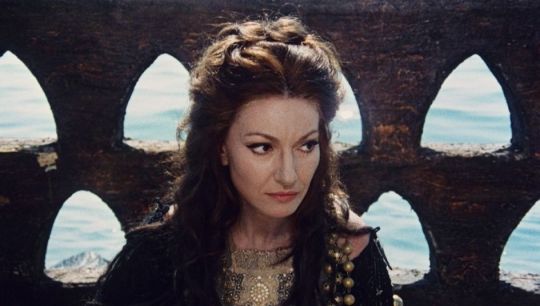
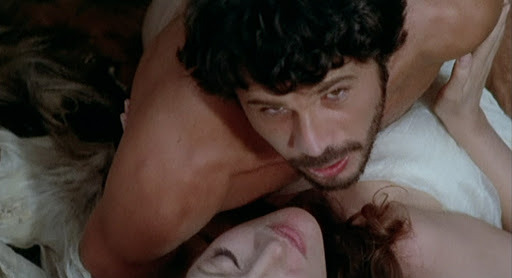
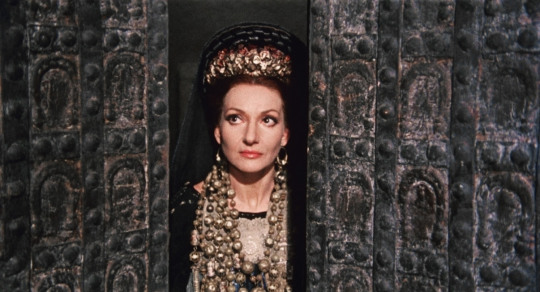
#Filme#Movie#Drama#Fantasia#Drama movie#Fantasy movie#Medéia a Feiticeira do Amor#Medea#Pier Paolo Pasolini#Maria Callas#Massimo Girotti#Giuseppe Gentile#Margareth Clementi#Laurent Terzieff
6 notes
·
View notes
Photo

Il Casanova di Federico Fellini 1976
11 notes
·
View notes
Photo



medea (1969)
35 notes
·
View notes
Photo

Margareth Clementi, “Il Casanova di Federico Fellini” (1976).
#haidagiffare#margareth clementi#il casanova di federico fellini#casanova#gif#federico fellini#educazione#furore#amanti#movies#movie
124 notes
·
View notes
Photo

Margareth Clémenti photographed by Ewa Rudling, 1970s
479 notes
·
View notes
Photo


My screencaps from Fellini’s Casanova, (Federico Fellini, 1976). Please do not remove the tag, thank you very much!! ^^
#Federico Fellini#Fellini's Casanova#Il Casanova di Federico Fellini#1976 Fellini's Casanova#Tina Aumont#Donald Sutherland#Cicelly Browne#my screencaps#Margareth Clémenti#margareth clementi
12 notes
·
View notes
Photo
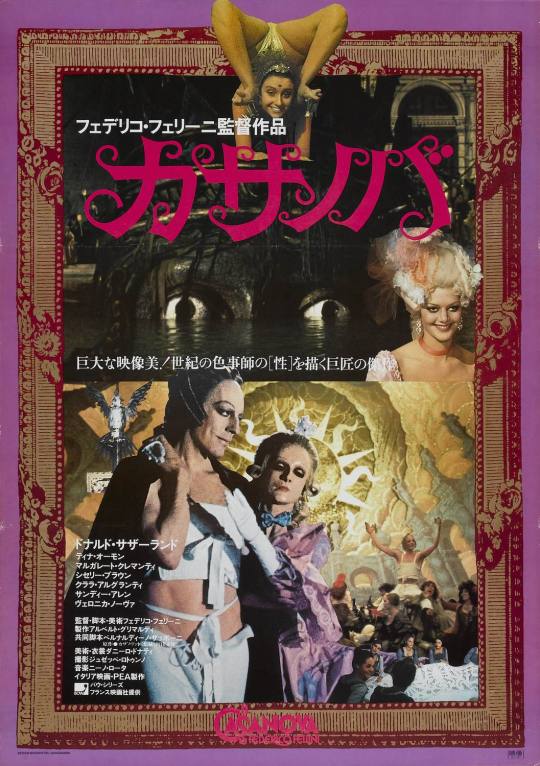
Fellini’s Casanova screencaps!!
In these dull days of confinement, I hope I will deilght your mood a little with the colourful screencaps of Fellini’s Casanova :D
Fellini’s Casanova (Il Casanova di Federico Fellini) is a 1976 Italian film by director Federico Fellini, adapted from the autobiography of Giacomo Casanova, the 18th-century adventurer and writer.
Shot entirely at the Cinecittà studios in Rome, the film won an Academy Award for Best Costume Design, with the Oscar going to Danilo Donati.
The film portrays Casanova’s life as a journey into trivial sexual abandonment. Any meaningful emotion or sensuality is eclipsed by increasingly strange situations. The narrative presents Casanova’s adventures in a detached, methodical fashion, as the respect for which he yearns is constantly undermined by his more basic urges.
Plot (it may contain spoilers)
The film opens with a carnival in Venice as a prelude to a series of erotic encounters that follow Giacomo Casanova through the cities of 18th-century Europe. The organizers of the festival attempt to raise a gigantic bust from the water; this fails, which is taken as a bad omen. Casanova is then introduced, as he visits one of Venice’s islands to copulate with a fake nun for the pleasure of a rich voyeur; Casanova succeeds in entertaining him, but is frustrated that the man finds no interest in his research into alchemy and his further scheming. As he rows back to the mainland, Casanova is arrested, judged and imprisoned by the High Court over his famed debauchery.
During his time in prison, Casanova reminisces of his affairs with a dressmaker and later on with one of her junior employees, Anna Maria, who suffers from frequent fainting and requires constant bloodletting. He eventually consummates his desire for Anna Maria. Back in prison, Casanova escapes through the roof and exiles himself from Venice, being taken into the Paris court of Madame d'Urfé. The Madame, an aged woman, enthralled by Casanova’s apparent knowledge of alchemy, wishes to transform her soul into a man’s through ritualistic intercourse with him (an act that requires the presence of a younger woman in the room, so that Casanova can get aroused). Fortuitously, Casanova encounters his brother, whose girlfriend he entices away. Casanova then moves to the court of a hunchback, Du Bois, in between taking charge of a beautiful girl—"the love of [his] life"—Henriette. Du Bois puts on a homosexual theatrical performance for his guests that unsettles some of them; Casanova is brought to tears as Henriette plays some music. The lovers vow fidelity to each other, but the following morning Henriette has disappeared. Du Bois informs Casanova that an emissary of a far-away court has reclaimed Henriette, and she’s left a request that Casanova not attempt to follow her.
While in London, Casanova is robbed by two women and he attempts suicide by drowning himself in the Thames. A vision of a giantess and two dwarves distracts him; he follows them to a frost fair, where he arm-wrestles the giantess—a princess—and later pays to watch her bathe with the dwarves. Casanova resumes his travelling the following day. He attends a deranged party at Lord Talou’s palace in Rome, where he wins a bet with a stagecoach driver, Righetto, over how many orgasms he can have in one hour. The competition brings him higher acclaim. In Switzerland he falls in love with an alchemist’s daughter, Isabella, who fails to keep an appointment to go to Dresden with him; Casanova instead partakes in an orgy within the hostel he’s been stranded in. In Dresden, he has a brief chance encounter with his estranged mother in a theater. He then moves to a court in Württemberg, where his desire to be taken seriously as a writer/inventor is frustrated by the court’s orgiastic, wild nature. It is here that he meets Rosalba, a mechanical doll with whom he shares a dance and later on goes to bed with.
Time goes by and an old Casanova finds himself librarian to Count Waldstein at his castle in Dux. Life at the castle is more than frustrating for Casanova, as he is made to eat with other servants and does not get the respect nor the food he claims to deserve. Waldstein’s manservant, Faulkircher, and his lover Vidarol, make him an object of mockery and animosity. A portrait of him is hanged and defecated on. Later on, during a fervent poetry recital, a court member fails to suppress a giggle at Casanova, who, humiliated and disappointed, goes back up to his room. The final scene has a weary, bloodshot Casanova cringing in an armchair and recounting a recent dream. In this dream, Casanova is back in Venice. He catches a glimpse of the giant bust seen in the beginning of the film, buried under thick layers of ice in the lagoon. He chases the ghosts of his past lovers, all of whom disappear. An ornate stagecoach beckons him to join its passengers. He finally meets with Rosalba, the mechanical doll, once again. They quietly dance with each other.
Cast
Donald Sutherland as Giacomo Casanova
Tina Aumont as Henriette
Cicely Browne as Marquise d'Urfé
Carmen Scarpitta as Madame Charpillon
Clara Algranti as Marcolina
Daniela Gatti as Giselda
Margareth Clementi as Sister Maddalena
Mario Cencelli as Dr. Mobius
Olimpia Carlisi as Isabella’s sister
Silvana Fusacchia as Isabella
Chesty Morgan as Barberina
Leda Lojodice as Rosalba the Mechanical doll
Sandra Elaine Allen as Angelina the Giantess
Marika Rivera as Astrodi
Diane Kurys as Madame Charpillon’s daughter
Alessandra Belloni as Princess
Donald Hodson as Hungarian captain
#Tina Aumont#Donald Sutherland#Federico Fellini#Fellini's Casanova#1976 Fellini's Casanova#my screencaps
36 notes
·
View notes
